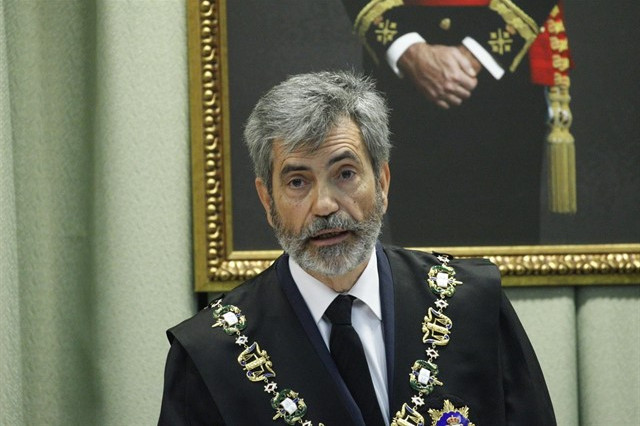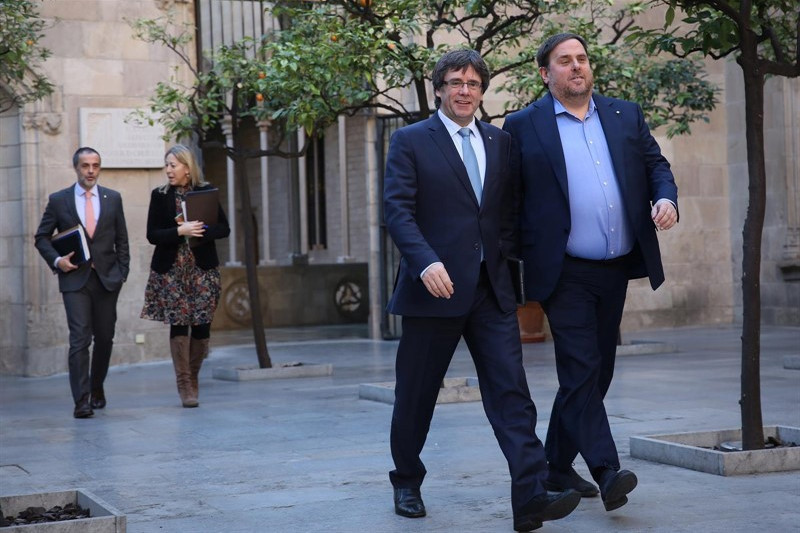
The European Order of Detention and Handover - a necessary and effective instrument in the fight against crime
Fernando Sobrón Ostos
A few months ago the El País newspaper published an article written by Fernando Irurzún that made me reflect on the effectiveness of the European order of detention and surrender as a necessary instrument in the fight against crime. In this article he concluded by saying: "... Judicial cooperation between countries in the European Union, among all or some of them, will continue to advance except if mistrust and disunity, not only in this area, continue to grow..".
The form of perpetrating crimes has changed substantially in recent years; technological advances, new forms of communication and improvements in the means of transportation are factors that improve the quality of life but, simultaneously, are used by a few for committing criminal offenses.
A significant proportion of the crimes that are being investigated in our courts or have not been committed in a specific place or affects the public at large of different countries, expressed in another way, crime today does not need to pertain to a territory.
The traditional structure available to countries to investigate crimes has to change, dispensing with old schemes and creating agile international judicial cooperation instruments that allow their speedy prosecution.
It is true that there have been advances in international judicial cooperation in recent years, particularly in the European Union, but these do not go far enough if we want to guarantee the right of all the public at large as victims of criminal violations to the right to effective judicial protection. Countries have to cede part of their sovereignty to facilitate the prosecution of criminal offenses.
THE EUROPEAN ARREST WARRANT REMAINS AN EFFECTIVE INSTRUMENT
In recent months, as a result of events known to all, there was a debate that has transcended society at large, about the European Order of Detention and Delivery, assessing even the possible ineffectiveness of this instrument, an opinion to which I openly disagree. Not only is it still an effective instrument, but I believe that its application should be extended as an instrument of international judicial cooperation outside European Union territory, provided that their conditions are met.
It is important to remember the reasons why this new form of extradition was regulated on within the European Union, what is its purpose was and what its application has been in recent years.
In its special session in Tampere in 1999, the European Council indicated the need to create an area of freedom, security and justice in the European Union, urging the EU Member States to convert the principle of mutual recognition into the cornerstone and essential concept for the European judicial area, since only through mutual recognition could the difficulties posed by differences between national judicial systems be overcome, as Angela Gómez-Rodulfo de Solís indicates in a work published by the Centre for Studies Law of the Ministry of Justice in 2017. However, this principle can only be fully expressed if there is a high degree of mutual trust between Member States.
The automatic application of this principle would mean accepting in each of the States the implementation of the judicial decisions adopted in others, without assessing their content.
The consequence of the implementation of instruments of international judicial cooperation based on this principle constituted a radical change of judicial cooperation within the European Union in a few years. The first legal instrument of the Union in which the principle of mutual recognition was applied in relation to criminal judicial decisions between member states was the Framework Decision on the European arrest warrant, adopted by the Council of Ministers of Justice and the Interior on June 13th, 2002. Spain was one of the first that implemented the FD, through Law 3/2003, of March 14th, on the European Order of Detention and Delivery (Official State Gazette of 03/17/2003), and Organic Law 2/2003, complementary to the previous one.
IT REPRESENTED A SIGNIFICANT ADVANCE
The European Union Member States sought new instruments of international cooperation to replace the traditional extradition procedure, which was slow and obstructed the processing of judicial business when the person under investigation was outside the country of the judicial body investigating the committing of an offense or, wanted to execute a resolution.
From the first moment, an significant sector of doctrine revealed that, and here I mention among others, Beatriz García Sánchez in a work published by the publisher of the Official State Gazette in 2007, in which in the "European arrest warrant" does not include the principle of automatic recognition of judicial decisions, and this is because the implementation of the European order is also subject to compliance with legal requirements, which has to be examined by the judicial enforcement authority to make the decision on this implementation or handover.
The adoption of the principle of automatic mutual recognition of judicial decisions was probably in 2002 and currently remains an overly-ambitious objective.
However, the "European arrest warrant" was a significant advance from the previous situation and highlighted three aspects. First, Judicialisation: the European arrest and delivery order is an act of direct communication between the judicial authorities of the member states. The intervention of the political authority proper to extradition is therefore dispensed with. These decisions are ultimately adopted by the judicial authorities of the member states that govern the principle of independence of the judiciary with respect to the rest of the powers of the state. Secondly, less formalities: the European arrest and surrender order constitutes a unified judicial order for the member states in the European Union and is documented using a single form. Thirdly, agile and preferential processing: the final decision has to be adopted within a maximum period.
One of the problems highlighted by the doctrine faced by implementing the aforementioned FD was the lack of harmonization in member states' procedural and penal legislation, to the point that a doctrinal sector, mainly in Germany, understood this harmonization as a prerequisite to the regulation of the instrument. However, the harmonization of European legal systems is a task that will take time and on top of this, we have to appreciate that the principle of mutual recognition is not directed so much towards the need for the harmonization of the criminal or procedural legislations in force in the member states, but rather to reinforce trust between them.
Nevertheless, we need to continue moving forwards, and if the harmonization of criminal and procedural legislations is a necessary task, it is also a complex objective that will take time.
There are other possibilities that I propose such as the homogenization of member states' international cooperation laws, establishing common or similar procedural systems in this matter.
Closely related to the problem indicated, we come across the need for double criminality for the handover of people outside the list of 32 crimes foreseen in the FD and in the law 23/14 of November 20th as regards the mutual recognition of criminal judgments in the European Union, which at this moment regulates our "European arrest warrant" legislation.
IN 2015, THE AVERAGE DURATION OF HANDOVER WAS 14 DAYS
It would be useful that, at least, we contemplate the possibility of making legislative changes aimed at expanding the list of crimes in which double criminality is not required. However, I consider it a priority and particularly worthwhile to analyze the criteria adopted in the resolutions of the Courts of the member states and the European Union Court of Justice on double criminality and if this requirement was taken into account, in a flexible way, in these resolutions.
With this in mind, I partially reproduce the judgment of the Court of Justice in Case C-289/15 Grundza, the Court of Justice interpreting Article 7 (3) and Article 9 (1) (d) of the Framework Decision 2008/909/JAI on how the condition of double criminality should be assessed. The Court of Justice ruled as follows:
" (…) when assessing double criminality, the competent authority of the executing State is required to verify whether the factual elements underlying the offence, as reflected in the judgment handed down by the competent authority of the issuing State, would also, per se, be subject to a criminal penalty in the executing State if they were present in that State."
"(…) in assessing double criminality, the competent authority of the executing State must ascertain, not whether an interest protected by the issuing State has been infringed, but whether, in the event that the offence at issue were committed in the territory of the executing State, it would be found that a similar interest, protected under the national law of that State, had been infringed."
In a nutshell, and by way of conclusion, the European arrest and handover order is a valid and effective instrument in international judicial cooperation in the European Union. In the member states, it paved the way for the implementation of many other instruments of mutual recognition and, without prejudice that it could be improved, has achieved several of the objectives expected of it, such as speeding of handover of people reclaimed for the investigation of criminal acts or for the implementation of decisions of the criminal courts by other countries within the European Union. In addition, the mutual recognition instrument most used by the European Courts is endorsed by the statistical data that the e-justice portal shows:
In 2015, the average duration of the delivery of a wanted person was:
- 14 days, when there was consent (around 50% of all handovers)
- less than 2 months, when there was no consent.
- In 2005, 6.894 "Euroorders" were issued by the European Courts and 836 were implemented. Only a decade later in 2015, 16,144 " Euroorders" were issued and 5.304 were implemented.










